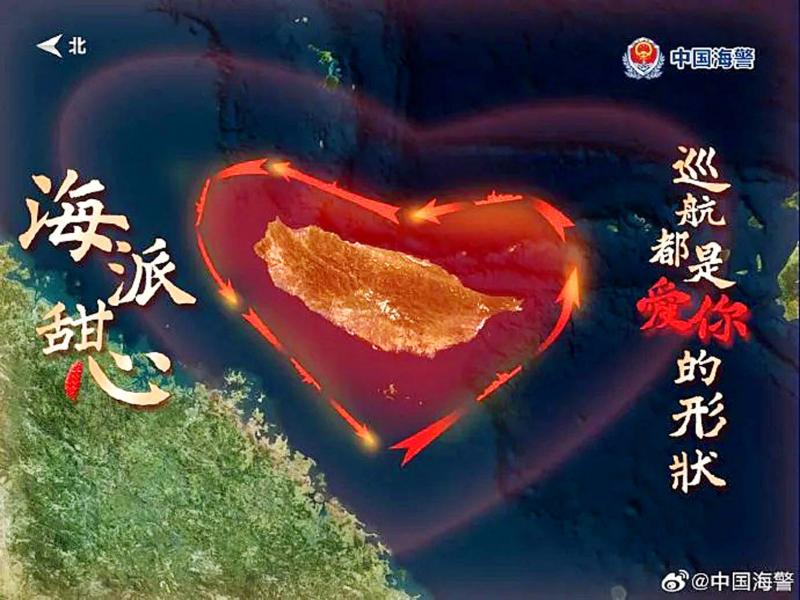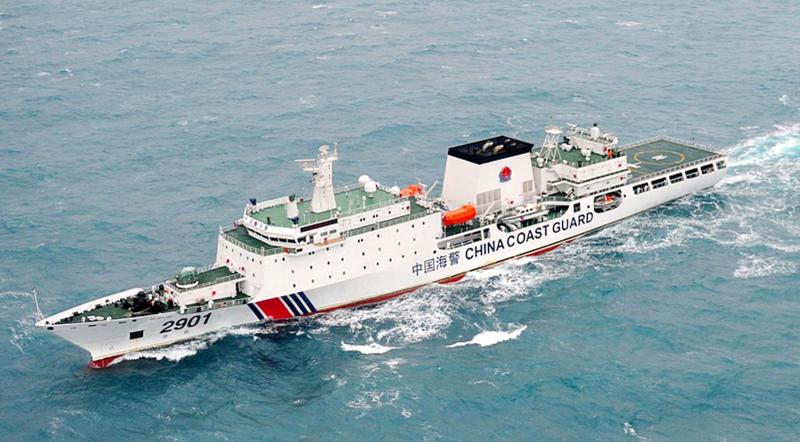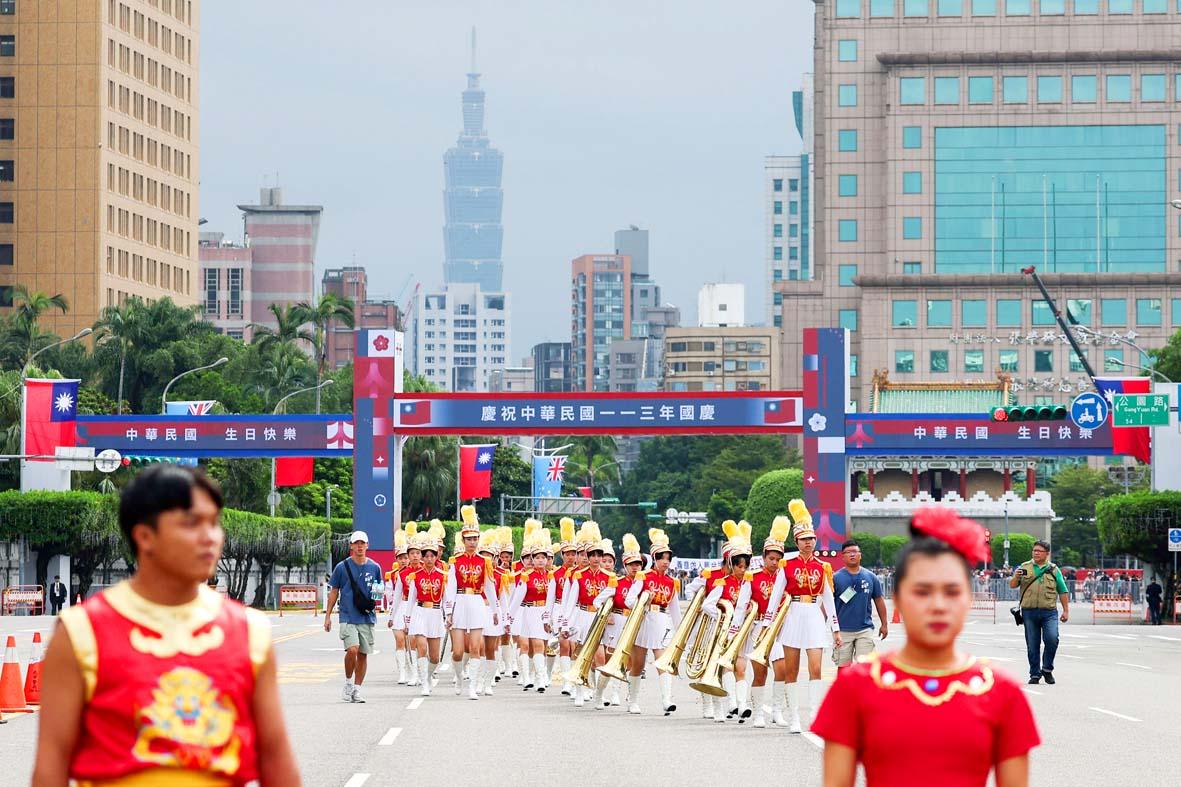A Chinese propaganda image dispersed during Monday’s military drills around Taiwan was supposed to send a positive message to the island’s people, but instead has been decried as weird, creepy and akin to “sexual harassment.”
On Monday China targeted Taiwan with major military exercises, surrounding its main island and outer territories with planes and ships to practice a blockade and attack. Alongside a record number of warplanes, dozens of navy and coast guard vessels, and cyber-attacks, China also launched a torrent of propaganda.
Among video montages of soldiers rushing towards troop carriers, photos of captains staring through binoculars from the deck of a warship and breathless editorials about “inevitable reunification,” one piece of media stood out: a love heart.

Photo taken from Weibo
The illustration, widely shared online, depicted a satellite image of Taiwan’s main island, and a line of arrows tracking around it in the shape of a heart. Accompanying script — in the traditional Chinese characters used by Taiwan — read: “Hi my sweetheart” and “The patrol is in the shape of loving you.”
The image came from China’s coast guard, which ran what it called “law enforcement patrols” around Taiwan during Monday’s drills.
Taiwan’s coast guard officials decried the image as Chinese cognitive warfare and harassment. But it didn’t appear to have the desired impact on the Taiwanese population.

Photo taken from Weibo
In local news the image prompted headlines. On social media it drew mostly ridicule and anger. People found the image “creepy,” and comment sections filled with vomit-emojis. Some likened the sentiment expressed to an abusive partner, while one newspaper called it “sexual harassment.”
Many were also perplexed by what appeared to be a reference to a 15-year-old Taiwanese TV drama, Hi My Sweetheart (海派甜心), long off the air. Some people surmised the reference was supposed to remind people of the show’s star, the local actor Rainie Yang (楊丞琳), who has faced criticism in Taiwan for saying she is Chinese and for posting pro-China content online.
Past propaganda efforts have included crude animations of missiles striking major cities in Taiwan. In August 2022, during drills launched in retaliation for a visit by the US speaker, Nancy Pelosi, China was accused of hacking into monitors at Taiwanese train stations and convenience stores to display messages disparaging her.

Photo: Reuters

In recent weeks the Trump Administration has been demanding that Taiwan transfer half of its chip manufacturing to the US. In an interview with NewsNation, US Secretary of Commerce Howard Lutnick said that the US would need 50 percent of domestic chip production to protect Taiwan. He stated, discussing Taiwan’s chip production: “My argument to them was, well, if you have 95 percent, how am I gonna get it to protect you? You’re going to put it on a plane? You’re going to put it on a boat?” The stench of the Trump Administration’s mafia-style notions of “protection” was strong

Every now and then, it’s nice to just point somewhere on a map and head out with no plan. In Taiwan, where convenience reigns, food options are plentiful and people are generally friendly and helpful, this type of trip is that much easier to pull off. One day last November, a spur-of-the-moment day hike in the hills of Chiayi County turned into a surprisingly memorable experience that impressed on me once again how fortunate we all are to call this island home. The scenery I walked through that day — a mix of forest and farms reaching up into the clouds

With one week left until election day, the drama is high in the race for the Chinese Nationalist Party (KMT) chair. The race is still potentially wide open between the three frontrunners. The most accurate poll is done by Apollo Survey & Research Co (艾普羅民調公司), which was conducted a week and a half ago with two-thirds of the respondents party members, who are the only ones eligible to vote. For details on the candidates, check the Oct. 4 edition of this column, “A look at the KMT chair candidates” on page 12. The popular frontrunner was 56-year-old Cheng Li-wun (鄭麗文)

“How China Threatens to Force Taiwan Into a Total Blackout” screamed a Wall Street Journal (WSJ) headline last week, yet another of the endless clickbait examples of the energy threat via blockade that doesn’t exist. Since the headline is recycled, I will recycle the rebuttal: once industrial power demand collapses (there’s a blockade so trade is gone, remember?) “a handful of shops and factories could run for months on coal and renewables, as Ko Yun-ling (柯昀伶) and Chao Chia-wei (趙家緯) pointed out in a piece at Taiwan Insight earlier this year.” Sadly, the existence of these facts will not stop the